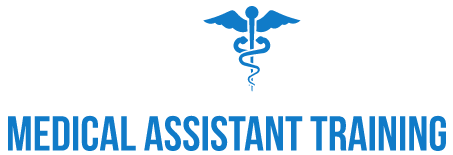Accredited Medical Assistant Training Programs: Your Exciting Path to a Rewarding Career
 Accredited medical assistant training programs can be your dream start. Imagine stepping into a bustling clinic, greeting patients with a warm smile, and knowing you’re a vital part of their care team. That’s the life of a medical assistant—and it all begins with the right education. If you’re a high school grad dreaming of a hands-on healthcare career that doesn’t require years of college, an accredited medical assistant training program might just be your golden ticket. But why “accredited”? Because it’s the stamp of quality that employers trust, ensuring you’re ready to shine in a real-world medical setting.
Accredited medical assistant training programs can be your dream start. Imagine stepping into a bustling clinic, greeting patients with a warm smile, and knowing you’re a vital part of their care team. That’s the life of a medical assistant—and it all begins with the right education. If you’re a high school grad dreaming of a hands-on healthcare career that doesn’t require years of college, an accredited medical assistant training program might just be your golden ticket. But why “accredited”? Because it’s the stamp of quality that employers trust, ensuring you’re ready to shine in a real-world medical setting.
In 2025, with healthcare booming—think job growth projected at 14% by the U.S. Bureau of Labor Statistics—medical assistants are more in demand than ever. Whether you’re drawn to organizing patient charts or assisting with minor procedures, this career blends purpose and practicality. Let’s dive into what these programs offer, why accreditation matters, and how you can find the perfect one for you. Ready to explore? Let’s go!
What Is an Accredited Medical Assistant Training Program?
So, what’s the big deal about accreditation? Picture it like a quality seal on your favorite snack—proof it meets high standards. An accredited medical assistant training program is approved by recognized bodies like the Commission on Accreditation of Allied Health Education Programs (CAAHEP) or the Accrediting Bureau of Health Education Schools (ABHES). These groups ensure the curriculum covers everything you need: medical terminology, patient care, and even office skills like scheduling.
Without accreditation, you might end up with a certificate employers shrug at. Accredited programs, though, open doors to certifications like the Certified Medical Assistant (CMA) or Certified Clinical Medical Assistant (CCMA)—credentials that scream, “I’m legit!” Plus, they often include hands-on externships, giving you a taste of the job before you dive in.
Why Choose Accreditation? The Perks You Can’t Ignore
Here’s a fun fact: 96% of employers prefer or require certified medical assistants, according to the National Healthcareer Association (NHA). That’s where accreditation shines. It’s not just about passing a test; it’s about building skills you’ll actually use. Think of it as learning to ride a bike with training wheels—structured support that sets you up for success.
- Job Ready: Accredited programs teach practical skills, from taking vitals to handling insurance forms.
- Certification Boost: Graduates qualify for exams like the CMA, giving you an edge in the job market.
- Financial Aid: Many accredited schools offer access to grants or loans—huge for budget-conscious students.
Take Sarah, a recent grad from an accredited medical assistant certification program. She landed a job at a local clinic within weeks, thanks to her externship connections. That’s the power of a program that’s got the green light from the pros.
Types of Accredited Medical Assistant Programs: Which Fits You?
Not all programs are one-size-fits-all, and that’s a good thing! Whether you’re a busy bee or a deep diver, there’s an option for you. Here’s a quick breakdown:
1. Certificate/Diploma Programs
- Length: 9-12 months
- Best For: Fast-trackers eager to start working ASAP
- Example: U.S. Career Institute offers an accredited online medical assistant certification program that’s flexible and affordable.
2. Associate Degree Programs
- Length: 18-24 months
- Best For: Those wanting broader knowledge or a stepping stone to higher roles
- Example: Anne Arundel Community College provides a CAAHEP-accredited associate degree for under $10,000.
Comparison Table: Certificate vs. Associate Degree
| Feature | Certificate Program | Associate Degree Program |
|---|---|---|
| Duration | 9-12 months | 18-24 months |
| Cost | $6,000-$8,000 | $10,000-$15,000 |
| Job Entry | Quick | Slightly slower but versatile |
| Credits Transferable | Rarely | Yes, to bachelor’s programs |
Still unsure? Ask yourself: “Do I want speed or depth?” Either way, accreditation ensures quality.
Top Schools Offering Accredited Medical Assistant Training Programs
Ready to find medical assistant accredited programs near me? Here are some standout options in 2025:
- Kaiser Permanente School of Allied Health Sciences
- Location: Richmond, CA
- Why It’s Great: Hybrid format with evening classes starting Fall 2025. Costs under $8,000 with real Kaiser clinical training.
- Link: kpsahs.edu
- Century College
- Location: White Bear Lake, MN
- Why It’s Great: CAAHEP-accredited with a 91.89% retention rate over five years. Perfect for hands-on learners.
- Link: century.edu
- MedCerts Online Program
- Why It’s Great: Fully online, preparing you for CCMA and CMAA exams. Ideal for remote learners seeking accredited online medical assistant certification programs.
- Link: medcerts.com
Pro tip: Search “medical assistant accredited schools near me” on Google Maps to find local gems tailored to your area!
What You’ll Learn: Skills That Make You Shine
Ever wondered what you’d do all day as a medical assistant? An accredited medical assistant training program covers the juicy stuff:
- Clinical Skills: Taking blood pressure, giving injections, or prepping patients for exams.
- Admin Tasks: Scheduling appointments, managing records, or billing insurance.
- Soft Skills: Calming nervous patients or teamwork with doctors.
Picture this: You’re helping a shy kid get ready for a checkup, chatting about their favorite superhero to ease their nerves. That’s the kind of real-world magic these programs prepare you for.
Online vs. In-Person: What’s Your Vibe?
Can’t decide between online and on-campus? Both have perks:
- Online Programs: Flexible schedules for jugglers—like parents or part-time workers. MedCerts or U.S. Career Institute are top picks for accredited online medical assistant certification programs.
- In-Person Programs: Hands-on labs and face-to-face networking. Think Century College or Kaiser Permanente.
I once met a student, Jake, who swore by his online program because he could study at midnight in pajamas. But his classmate Mia loved in-person classes for the lab buzz. What’s your style?
How to Pick the Perfect Program: Tips for Beginners
Choosing feels overwhelming, right? Relax—I’ve got you covered with actionable steps:
- Check Accreditation: Confirm CAAHEP or ABHES approval. No shortcuts here!
- Look at Outcomes: What’s the job placement rate? Century College boasts 100% employer satisfaction.
- Cost vs. Value: Compare tuition to certification prep and externships offered.
- Ask Around: Chat with grads on forums like Reddit for unfiltered scoop.
Here’s a quirky tip: Tour a campus or hop on a Zoom info session. Feeling the vibe can seal the deal.
The Payoff: What’s Next After Graduation?
Finish an accredited medical assistant certification and the world’s your oyster. Starting salaries hover around $38,000-$42,000, with room to grow. Clinics, hospitals, even specialty offices like dermatology are hiring. Plus, that certification? It’s your VIP pass to stand out.
Sarah from earlier? She’s now training newbies at her clinic, loving the chaos and camaraderie. That could be you in a year!
Take the Leap Into Healthcare Today
An accredited medical assistant training program isn’t just school—it’s your launchpad to a career that matters. Whether you go online with MedCerts or hands-on at Century College, you’re investing in a future where you help people daily. With healthcare jobs booming and accreditation paving the way, why wait?
